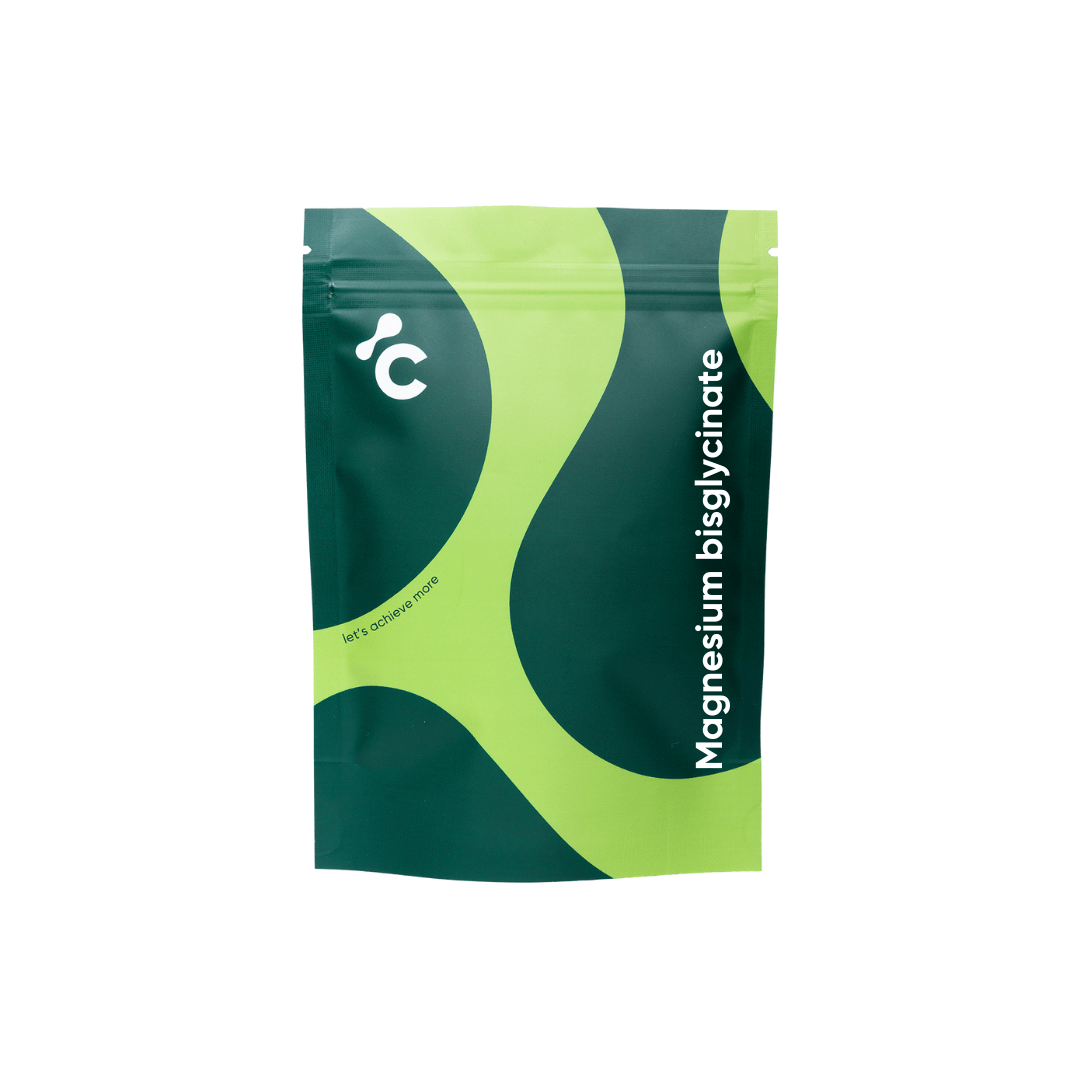Magnesium Glycinate vs Citrate: Which One is Right for You?

When faced with the choice between magnesium glycinate and citrate, it’s essential to understand how each form of this crucial mineral can influence your health differently. Magnesium is not just a single element but comes in various forms, each bound to different compounds that significantly influence its absorption and effects on the body. Understanding their differences and uses based on real user experiences can help you make an informed choice. In this article, we’ll provide a comprehensive look at both forms of magnesium based on actual user feedback.
Table Of Contents
Article Methodology
To ensure transparency and maintain the trust of our readers, it is essential to outline the methodology employed in crafting this article. Here’s how we approached the research and compilation of information to provide a user-focused, experience-based overview of magnesium glycinate versus citrate:
- Focus on Real User Feedback: The core of our research is built upon the feedback from actual users. We carefully read through numerous discussions and testimonials regarding personal experiences with magnesium glycinate and citrate. This approach allows us to gather authentic, real-world data.
- Engagement with Community Discussions: We explored various platforms where individuals actively discuss health supplements, including Reddit and Quora, and platforms dedicated to discussing nootropics. These sources are rich with user-generated content, offering diverse personal insights and experiences.
- No Claims of Scientific Accuracy: While we provide summaries of user experiences, we do not claim these reflect scientific accuracy or endorse any health claims. The personal accounts discussed are for sharing purposes only and should not be taken as medical advice.
- Encouragement of Critical Engagement: We encourage our readers to critically engage with the content and not accept it blindly. It is crucial to consult healthcare professionals before making any decisions based on the information shared.
- Transparency of Sources: We are committed to transparency and provide sources where possible, allowing readers to trace the information back to its origins and further explore the discussions if they wish.
Understanding the Forms
Both magnesium glycinate and citrate are chemically bound forms of the mineral magnesium, each linked to a different compound that influences how they behave in the body. Magnesium glycinate is coupled with glycine, an amino acid that contributes to its overall properties, while magnesium citrate is bound to citric acid, which is naturally found in citrus fruits and affects the compound’s solubility and behaviour.
The specific compound to which magnesium is bound impacts various characteristics including:
- Absorption and Bioavailability: The form of magnesium can influence how well it is absorbed in the digestive tract. For example, certain forms are known to dissolve more easily under physiological conditions, potentially enhancing their availability to the body.
- Behaviour in the Body: The compounds linked to magnesium, such as glycine or citric acid, can also influence where and how magnesium interacts within the body. This can affect how the body utilises the magnesium, though individual experiences and responses can vary widely.
- Application and Use: Different forms of magnesium may be selected based on their properties. For instance, the solubility of a magnesium compound might make it more suitable for certain uses compared to others.
Understanding these nuances is crucial for selecting a magnesium supplement that aligns with your preferences and needs, especially when considering the diverse experiences shared by individuals on various platforms. Always consider discussing with a healthcare provider to determine which form might be most appropriate for your specific situation.
User Experiences with Magnesium Glycinate vs. Citrate
Based on an online discussion, here’s a summary of user experiences with magnesium glycinate and citrate, highlighting the varied effects each form can have:
Magnesium Glycinate Experiences
- Sleep Improvement: Users have noted that magnesium glycinate tends to improve sleep quality, often describing enhanced ability to fall and stay asleep. One of the users noted, “I’ve been taking 800mg of magnesium glycinate. Glycine 3000mg and 500 taurine and it has almost cured 6 years of insomnia and when I wake up it makes me feel ridiculously refreshed. Stuff’s amazing.”
- Calming Effect: Some people find that magnesium glycinate has a calming effect, which they attribute to the glycine content.
- Potential for Lethargy: A notable number of users reported experiencing lethargy and a general sense of fatigue when using magnesium glycinate, which for some, negated the benefits received from improved sleep.
Magnesium Citrate Experiences
- Digestive Health: Magnesium citrate is frequently mentioned for its effectiveness in promoting regular bowel movements, which makes it a preferred choice for users dealing with digestive sluggishness.
- Mood and Energy Enhancement: Users of magnesium citrate have reported improvements in mood and energy levels. Some have found it particularly useful for reducing anxiety and enhancing the effectiveness of other medications like ADHD treatments. One of the users mentioned, “When taking 200mg per day of Citrate, I feel like I have a better mood, more energy, less social anxiety, and lower ADHD medication tolerance (Ritalin).”
- Brand-Specific Reactions: It’s interesting to note that reactions to magnesium citrate can vary significantly depending on the brand, with some brands causing gastrointestinal issues like diarrhoea at lower doses while others are well-tolerated at higher doses.
This summary captures the collective input from individuals who have experimented with both forms of magnesium, offering a broad perspective on their potential benefits and downsides without making health claims about the efficacy of either form.
How People Use Magnesium Glycinate vs Citrate?
Based on the discussion thread you provided, here’s a summary of how people incorporate magnesium glycinate and citrate into their routines, along with their experiences and preferences:
Magnesium Glycinate:
- Use for Sleep and Relaxation: Many users prefer magnesium glycinate for its calming effects, particularly before bedtime. It’s frequently mentioned for its ability to improve sleep quality, with users noting that it helps them feel more rested upon waking.
- Dosage: Users often take magnesium glycinate in the evening, typically around 400mg to 800mg, to enhance sleep quality without causing daytime drowsiness.
- Combination with Other Supplements: Some users combine magnesium glycinate with other sleep-promoting supplements like melatonin or L-theanine, enhancing its effectiveness for sleep without increasing sedative effects excessively.
- Specific Scenarios: People suffering from conditions like anxiety or insomnia often find magnesium glycinate beneficial due to its neuroprotective and muscle-relaxing properties.
Magnesium Citrate:
- Use for Energy and Mood Enhancement: Users prefer magnesium citrate for daytime use, citing improvements in energy levels, mood enhancement, and reduced anxiety. It’s noted for its faster action and effectiveness in these areas compared to glycinate. One of the users noted, “When taking 200mg per day of Citrate, I feel like I have a better mood, more energy, less social anxiety, and lower ADHD medication tolerance (Ritalin). I had the same benefits with Magnesium Malate, as well.”
- Dosage: The dosage for magnesium citrate varies widely, with some users taking small doses spread throughout the day (around 200mg per dose) to avoid potential digestive side effects and maintain steady benefits. One of the users says, “Okay awesome thank you. I’ve been taking 800mg of magnesium glycinate. Glycine 3000mg and 500 taurine and it has almost cured 6 years of insomnia and when I wake up it makes me feel Ridiculously refreshed. Stuffs amazing.”
- Management of Digestive Issues: While magnesium citrate is known for its laxative properties, users adjust the dosage to manage its effects, using lower doses to avoid unwanted digestive side effects while still gaining the mood and energy benefits.
- Synergistic Effects with Other Supplements: For energy and mental clarity, users sometimes combine magnesium citrate with other supplements like B-vitamins or caffeine, depending on their tolerance and need for additional energy boosts.
General Observations
- Brand Preferences: Users often discuss the importance of brand selection, noting that certain brands may offer more predictable and tolerable results.
- Trial and Error: A common theme is the individual variability in response to both forms of magnesium, suggesting that personal experimentation with dosage and timing is crucial.
- Health Considerations: Users frequently mention the importance of considering health conditions, such as kidney health or gastrointestinal sensitivity, when choosing the type and dosage of magnesium.
This summary reflects the personal experiences and practices discussed in the thread, illustrating how different forms of magnesium can be tailored to meet individual health needs and lifestyle preferences.
Side Effects of Magnesium Glycinate vs Citrate According to Users
Based on the discussion in the thread, here are the side effects experienced by users with magnesium glycinate and citrate:
Magnesium Glycinate:
- Lethargy and Fatigue: Several users reported feeling lethargic and fatigued when taking magnesium glycinate. One user mentioned, “with Glycinate, I only get lethargy/fatigue and laziness. Everything feels like a chore.”
- Sedative Effects: Glycinate’s sedative properties were mentioned, making it effective for inducing sleep but not necessarily desirable for daytime use due to increased drowsiness.
Magnesium Citrate:
- Diarrhoea/Loose Stools: This was a common side effect mentioned by users, especially at higher doses or with specific brands of magnesium citrate.
- Variable Effects by Brand: The side effects, particularly gastrointestinal ones, varied significantly depending on the brand of magnesium citrate used.
These personal accounts provide a snapshot of how different forms of magnesium can affect individuals, with some experiencing beneficial effects alongside the side effects.
Disclaimer
The experiences and outcomes shared in this article are based on individual contributions from users on a public discussion platform and do not represent professional medical advice. The effectiveness of magnesium supplements can vary widely from person to person, and while some individuals report positive effects, these experiences should not be taken as universally applicable. Always consult with a healthcare professional before starting any new supplement regimen, especially if you have pre-existing health conditions or are taking other medications.





